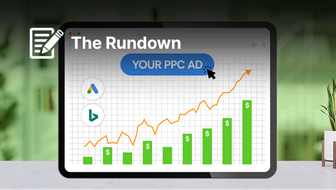Online search is more often than not the starting point in a local consumer’s quest for products and services nearby.
In fact, 78% use the Internet to find information about local businesses in their area more than once a week – and 21% are searching locally every day, according to BrightLocal’s most recent local consumer survey.
You must be visible in local organic and Map Pack search results if you want to get found. Then you have a chance to convert those searchers to in-store traffic, booked appointments, or some other type of paying customer.
In this column, you’ll find 7 of the most impactful ways you can build local visibility using SEO.
Jump to:
- 1. Check For Technical Errors That Could Impact Indexing
- 2. Create Exceptional Content
- 3. Incorporate Local Link Building Into Your SEO Strategy
- 4. Get Your Google Business Profile In Order
- 5. Ensure Local Listings Are Accurate
- 6. Monitor & Respond To Local Reviews
- 7. Use Relevant Local Schema
- 8. Bringing It All Together
1. Check For Technical Errors That Could Impact Indexing
This is baseline SEO. You can’t get found if search engines can’t index your site.
First, learn the basics about how search engines crawl and index your website. This foundational knowledge will help guide your SEO efforts going forward.
You may very well decide that technical SEO issues such as indexation are too complex for you to manage on top of running your business.
If that’s the case, at least you’ll understand what you’re hiring an SEO agency or consultant to do for you.
On the other hand, you might feel confident looking into indexation issues yourself and in that case, these resources can help:
- How to Report Indexing Issues in Google Search Console
- 14 Top Reasons Why Google Isn’t Indexing Your Site
2. Create Exceptional Content
Content is the vehicle by which all messaging, offers, and calls to action will be delivered to your audience.
But your small business isn’t just competing against other businesses like yours in the search results.
You’re also up against media publications, informational websites, big brands, local review sites, and all kinds of other sources that create content relevant to your products and services.
The bar is high, and that means your content must be exceptional to stand out.
Before you jump in with both feet and start cranking out blog posts, take the time to create a local content strategy that aligns with your business goals.
Make sure you incorporate different types of local content, and optimize each piece for search using these proven on-page local SEO best practices.
3. Incorporate Local Link Building Into Your SEO Strategy
Links are the currency of the web. They’re an important trust signal to search engines like Google and suggest that others endorse your content.
John McAlpin explains, “Local links are done with the intention to show that others with relevance to the local area trust or endorse your business.”
His piece ‘What Is A Local Link & How To Find More Local Link Opportunities‘, part of our Local SEO Guide, is a great starting point for your local link building strategy.
From there, I highly recommend you read this column from Kevin Rowe, in which he shares 50 types of links and what you need to do to attract each one.
4. Get Your Google Business Profile In Order
No local search strategy is complete without a well-optimized Google Business Profile (GBP).
While Google draws local business information from a wide variety of sites, directories, and networks around the web, it does look to its own profiles as a single source of truth about any local business.
Previously known as the Google My Business program, these profiles have grown richer and more interactive in recent years. And with these updates, they’ve become more useful for local searchers, too.
Today, GBPs not only provide key business information such as your location and contact information but also enable you to:
- Help searchers understand the experience they’ll have at your business with a variety of high-quality photos and videos.
- Showcase offers, events, and more with Google Posts.
- Interact with customers via Messaging, Q&A, and responding to reviews.
- Proactively share differentiating features, health and safety information, payment methods, and more with Attributes.
Sherry Bonelli offers a great guide to GBP optimization here.
5. Ensure Local Listings Are Accurate
Google values searcher experience above all else. Inaccurate, outdated information that negatively impacts searcher experience is, therefore, a liability and can hinder your local visibility in a big way.
Wherever a searcher encounters your business listing online – whether on social, in a local directory, in Yellow Pages, on review sites such as Yelp or Trip Advisor – the information they find there should enable them to seamlessly convert.
Having the wrong phone number, address, hours of operation, or other key business information listed can result in a searcher showing up at a closed store, for example.
Or being sent by their GPS system to your former location.
Seeing various versions of key business data around the web makes it difficult for search engines to know what’s true.
Given that Google wants to give each searcher the best possible answer to their query, you do not want the algorithm questioning whether your business information is trustworthy.
Tracking listings manually is time-consuming and incredibly difficult, as data aggregators and directories may be scanning for business information and updating their listings.
This is how misinformation or outdated listings proliferate, and the wrong address, URL, or hours can spread far and wide.
Small businesses can use a local SEO tool like Moz Local or Semrush to automate the process of scanning for business listings and monitoring their accuracy.
6. Monitor & Respond To Local Reviews
Reviews are a highly impactful part of the local search experience and in 2021, 77% of local consumers said they always or regularly read reviews when searching for local businesses.
Google’s local ranking algorithms are less a mystery than their organic counterparts. Google openly tells us there are three main local ranking factors: Relevance, Distance, and Prominence.
Reviews are part of the Prominence factor, and Google states:
“Google review count and review score factor into local search ranking. More reviews and positive ratings can improve your business’ local ranking.”
Jeff Riddall offers a comprehensive overview of how Google reviews impact organic and local search rankings here.
Check out Matt Southern’s ‘Where & How To Get The Right Reviews For Your Business‘ to learn more.
7. Use Relevant Local Schema
While not a ranking factor, schema markup is a type of structured data that makes the web crawlers’ job easier and helps the search engine better understand the content of your page.
Anything you can do to help Google more effectively match your page to a relevant query is a win.
Schema markup can help trigger rich results that highlight additional information such as breadcrumbs, reviews, FAQs, and sitelinks on search results.
Applying schema properly, then testing and validating your markup, is essential as errors can disqualify you from obtaining those rich results.
Chelsea Alves wrote a fantastic guide to local markup and rich results that can serve as your starting point for adding this tactic to your local SEO strategy.
Bringing It All Together
Taking on local SEO as a small business can seem daunting. You may not have a dedicated marketing department, and it’s not uncommon for business owners to feel overwhelmed by the administrative and marketing tasks that come with being an entrepreneur.
I hope this guide gives you enough information and resources to determine what you can tackle in-house and what you may need to outsource.
Using an agency or consultant to augment your in-house skills is just fine – but it’s essential that you have a healthy understanding of what you’re asking these professionals to do for you.
Remember, local SEO is not a one-time, ‘set it and forget it’ activity to check off the list.
It’s an integral part of your marketing, and often intersects with customer service, as well.
To learn more, download Search Engine Journal’s ebook ‘Local SEO: The Definitive Guide to Improve Your Local Search Rankings.’
More resources:
- Local SEO For Beginners: Getting Started
- Top 6 Ways To Get Higher Quality Reviews [Webinar]
- New Google Local & Google Maps Features That Boost Marketing, with Amanda Jordan [Podcast]
Featured image: Shutterstock/Deemka Studio





